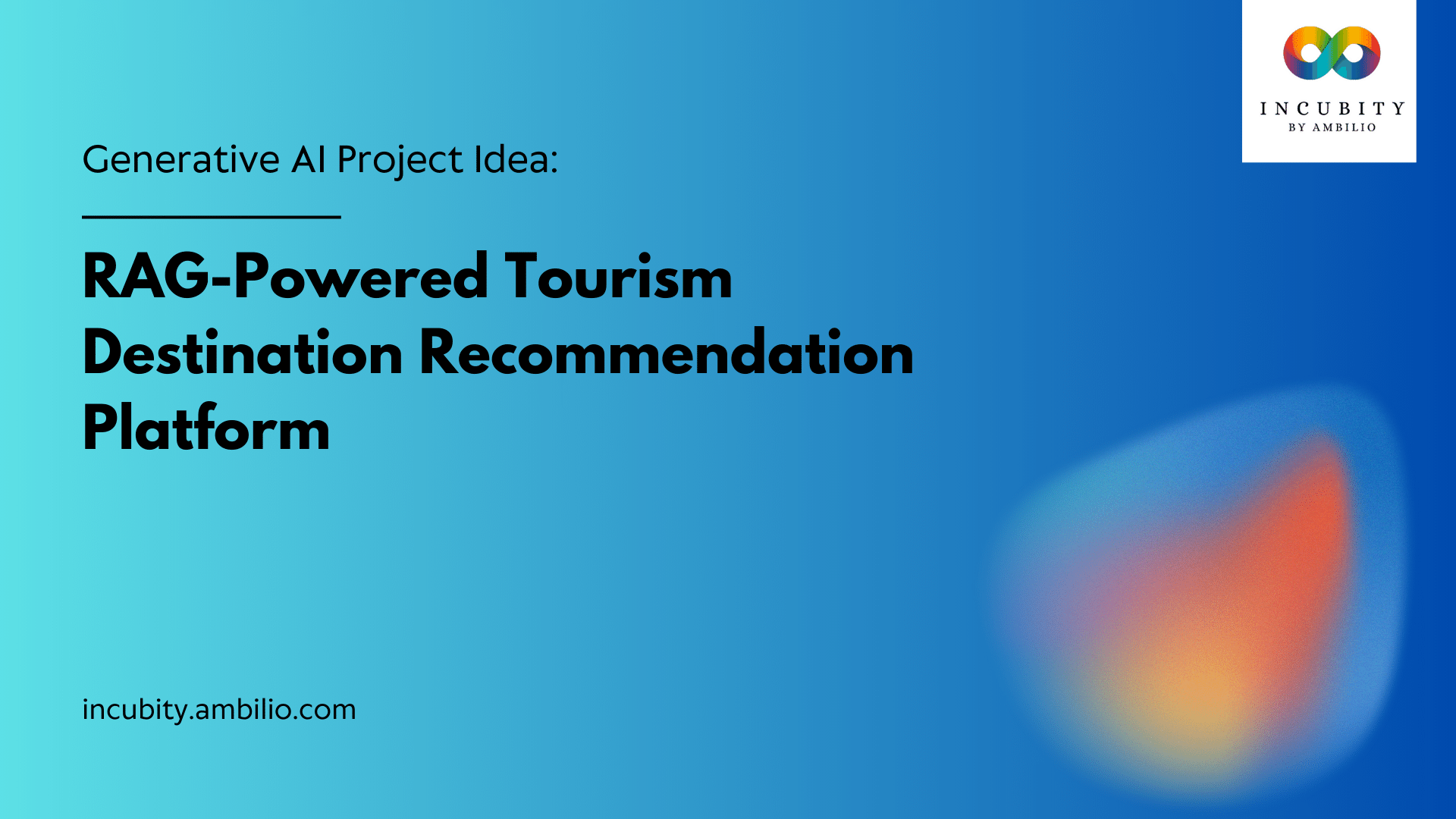In an age where travel is not just a luxury but a lifestyle, the demand for personalized and efficient travel planning solutions has never been higher. Travelers are often overwhelmed by the abundance of destinations, attractions, and activities available, while also grappling with evolving travel restrictions and safety concerns. Recognizing these challenges, developing a RAG-powered Tourism Destination Recommendation Platform emerges as a transformative solution. This comprehensive guide explores the necessity of such a solution, the intricacies of its development process, technical requirements, anticipated benefits, and the potential return on investment (ROI) for tourism-based companies.
Why Tourism Destination Recommendation Platform is Needed?
Traditional travel planning methods often fall short in delivering personalized and relevant recommendations to travellers. Generic suggestions and biased reviews fail to capture the diverse preferences and interests of modern travelers, leading to suboptimal travel experiences. Moreover, navigating through a maze of travel restrictions and safety advisories adds another layer of complexity to the planning process. A RAG-powered Tourism Destination Recommendation Platform addresses these pain points by harnessing the power of advanced natural language processing (NLP) techniques to deliver tailored destination recommendations that align with travellers’ preferences and current travel conditions.
Understanding the Development Process
The development of a RAG-powered Tourism Destination Recommendation Platform entails a meticulous and multi-faceted approach:
1. Data Collection and Preparation
Gathering diverse datasets forms the foundation of the platform’s recommendation engine. These datasets encompass a wide range of sources, including reputable travel guides, user-generated reviews from platforms like TripAdvisor and Yelp, historical travel data, up-to-date travel restrictions, safety advisories, and detailed destination attributes. The richness and quality of these datasets are crucial in training a robust and accurate recommendation model.
2. Model Training and Optimization
Training the RAG model requires a combination of supervised learning techniques and reinforcement learning algorithms. The model learns to understand and contextualize travel-related queries and recommendations by analyzing vast amounts of text data. Fine-tuning the model with domain-specific knowledge and optimizing its parameters are iterative processes aimed at maximizing recommendation accuracy and relevance.
3. Integration and User Interface Design
The seamless integration of the RAG model with an intuitive user interface is paramount to the platform’s usability and accessibility. Designing a user-friendly web or mobile application interface allows travelers to input their preferences, constraints, and trip details effortlessly. The interface should facilitate clear communication and interaction between the user and the recommendation engine, ensuring a frictionless travel planning experience.
4. Testing, Validation, and Iteration
Before deployment, rigorous testing and validation procedures are conducted to assess the platform’s effectiveness in generating accurate, relevant, and timely recommendations. Testing scenarios simulate various user queries, preferences, and travel scenarios to evaluate the platform’s performance across different contexts. Feedback from beta testers and user trials inform iterative improvements and refinements to the recommendation engine and user interface design.
Technical Requirements
The successful development and deployment of a RAG-powered Tourism Destination Recommendation Platform rely on several key technical components:
- Data: Comprehensive and diverse datasets spanning travel guides, user reviews, historical travel data, travel restrictions, safety advisories, and destination attributes.
- LLMs: State-of-the-art large language models such as GPT, LLaMA, Mistral or any other LLMs trained / fine-tuned on tourism-specific data.
- Software Tools: Natural language processing libraries (e.g., spaCy, NLTK), machine learning frameworks (e.g., TensorFlow, PyTorch), web development tools (e.g., React, Angular), and mobile application development frameworks (e.g., Flutter, React Native).
- Infrastructure: Robust cloud computing resources for model training, deployment, scalability, and maintenance.
Benefits of the Platform
The implementation of a RAG-powered Tourism Destination Recommendation Platform offers numerous benefits to travellers, tourism agencies, and travel planners:
- Personalized Recommendations: Travelers receive tailored destination recommendations based on their preferences, interests, and travel constraints, enhancing their travel experiences and satisfaction.
- Efficiency and Time Savings: The platform streamlines the travel planning process, saving time and effort for travellers and travel planners alike.
- Safety and Risk Mitigation: Integration of real-time travel restrictions and safety advisories promotes informed decision-making and responsible travel practices, mitigating potential risks for travellers.
- Competitive Advantage: Tourism agencies and travel planners gain a competitive edge by offering advanced travel planning services that prioritize customer satisfaction, safety, and personalization.
Return on Investment (ROI) for Tourism-Based Companies
The adoption of a RAG-powered Tourism Destination Recommendation Platform yields tangible returns for tourism-based companies:
- Enhanced Customer Satisfaction and Loyalty: By providing personalized and relevant destination recommendations, the platform fosters stronger connections with customers, leading to increased repeat business and positive word-of-mouth referrals.
- Increased Sales Conversions: The platform’s ability to facilitate informed decision-making and inspire confidence in travel plans translates into higher sales conversions for tourism products and services.
- Operational Efficiency Gains: Streamlining the travel planning process reduces operational costs and boosts productivity for tourism agencies and travel planners, driving bottom-line growth.
- Brand Reputation and Differentiation: Offering cutting-edge travel planning services that prioritize safety, personalization, and convenience enhances the company’s brand reputation and differentiation in a competitive market landscape.
Final Words
In conclusion, the development and implementation of a RAG-powered Tourism Destination Recommendation Platform represent a significant step forward in revolutionizing the travel planning experience. By harnessing the power of advanced NLP techniques and integrating real-time travel data, the platform empowers travellers to make informed decisions and embark on memorable journeys with confidence. For tourism-based companies, the adoption of such a platform offers not only tangible returns in terms of increased sales and operational efficiency but also intangible benefits such as enhanced brand reputation and customer loyalty. As the travel industry continues to evolve, investing in innovative solutions like a RAG-powered Tourism Destination Recommendation Platform is paramount to staying ahead of the curve and delivering exceptional value to travellers worldwide.



